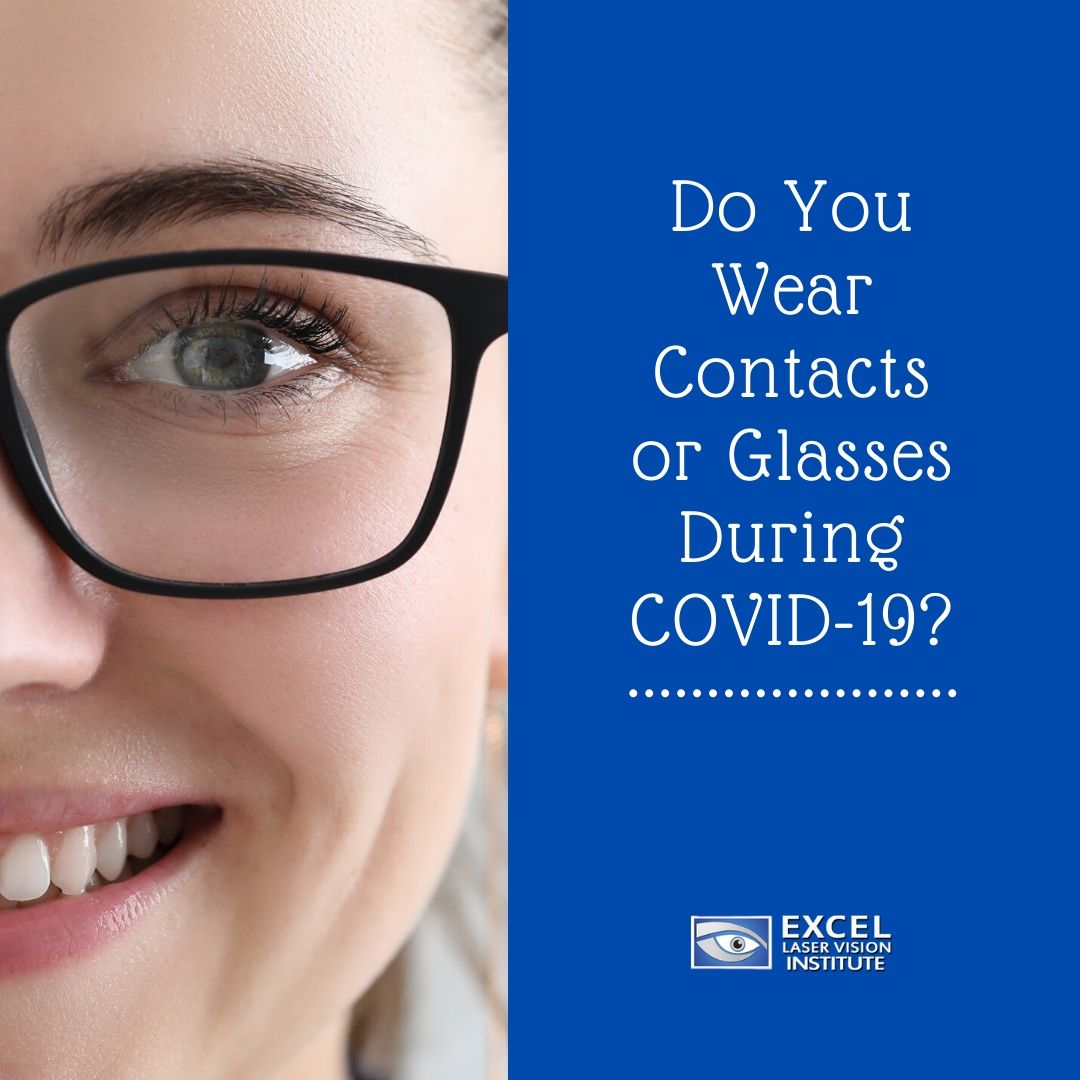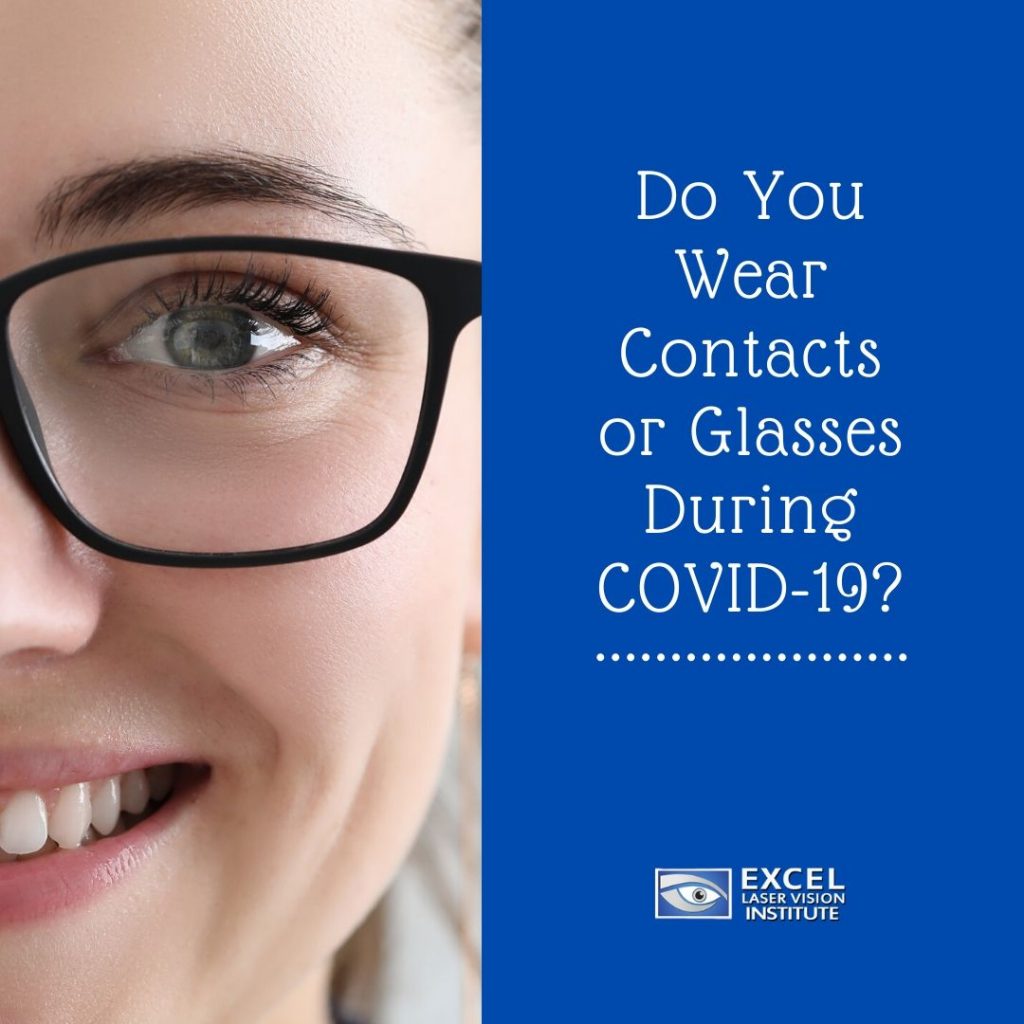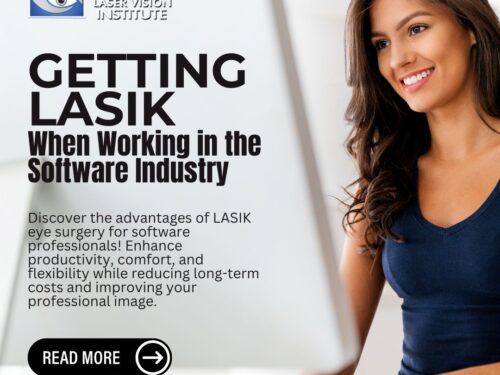
Nowadays, people are becoming more aware of their hygiene practices and the habits that increase their risk of infection. At the start of the coronavirus outbreak, doctors were telling everyone to limit touching their mouth, nose, and eyes as well as washing hands frequently. Many people with prescription glasses or contacts began to understand the extent of their dependency on prescription lenses, and how LASIK would significantly improve their lives in times like these. Unfortunately, many of those people will have to wait to schedule an appointment with a LASIK surgeon like Doctor Moosa. With many offices closed for non-urgent appointments, people in Orange County are having to adjust to certain eye safety practices and routines.

The contacts versus glasses debate began when some eye doctors began to caution patients against wearing their contact lenses in order to avoid contamination of the mucous membrane through finger-eye contact. LASIK clinics in Orange County like Excel Laser Vision Institute agreed that glasses were a safer option. However, both require increased awareness in times like these because people that wear contacts or glasses touch their faces more often than those who do not.
While wearing glasses does not guarantee that you will not get sick, it can certainly help protect against the habit of touching your eyes. The Orange County LASIK surgeon says that glasses can also act as a partial shield from infected droplets that travel through someone else’s cough or sneeze.
For many reasons, glasses have been the standard recommendation in times when infection rates are being closely monitored. However, there are some cases in which contacts can be utilized in a safe and effective manner, especially for those who have limited options. According to a LASIK surgeon in Orange County, Doctor Moosa, you need to abide by certain safety standards when continuing to wear contact lenses. For one, not wearing them when you are feeling sick. Even if it is just a cold, you don’t want to risk transferring infections to your eye. Another rule to live by in times like these is to use disposable lenses.
Contacts are necessary and comfortable for many people, which is why there has been so much pushback against the suggestion to wear glasses. Ultimately, it comes down to your own personal situation. According to research by the American Academy of Ophthalmology, the ocular transmission of the coronavirus is not yet a widely supported fact. However, the eyes contain sensitive mucous membranes, just like the mouth and nose, which is why doctors are advising caution all the same. For many people, the risk is not worth the convenience of wearing their contact lenses.
Whichever form of vision correction you choose, it is important to regularly disinfect your lenses and wash your hands whenever interacting with your face. Here are some more eye safety tips from one of the Orange County LASIK surgeon– Doctor Ferzaad Moosa.
Tips for Those Who Wear Contacts
Before you touch your contact lenses, wash your hands with soap and water for up to 20 seconds. You can use a lint-free towel to dry them. Repeat this routine every time you need to remove, insert, or adjust your lenses. When you don’t have access to a sink, you may use hand sanitizer with 60% alcohol.
If you are using disposable lenses, then you should throw them out after every day. If you are using monthly or bi-weekly lenses, then you need to follow disinfection guidelines by your eye doctor or the manufacturer. Saline solution or rewetting drops are not acceptable methods of disinfecting.
If you start feeling sick, you should immediately stop wearing your contacts.
Tips for Those Who Wear Glasses
According to recent studies, the coronavirus can remain on certain surfaces for up to a few days. It is possible to transfer infected droplets to your glasses when putting on, adjusting, or removing them. In order to accommodate these risks, it is important to frequently clean your glasses.
Those who regularly wear face masks and glasses have also experienced the fogging-up effect that can severely block your vision. In order to prevent this inconvenience, while still wearing your protective mask, there are a few different measures you can take:
- Seal the mask. The reason that your glasses are fogging up is because your breath is escaping from the top and sides of the mask. Good quality medical masks (N95) usually do not have this problem because they have a tight seal to keep the air in. So, when you are using your handmade cloth mask, you can mimic this seal by attaching a bendable strip like a twist-tie, paperclip, or pipe cleaner to the top. This can form around your nose and cheeks in order to create a tighter seal. You can also use some kind of skin-sensitive adhesive like cloth tape.
- Wear your glasses differently. For some people, it helps to move glasses father down from the bridge of the nose, on top of the mask. This is especially helpful in situations where you cannot make the mask fit tighter. You can also try the reverse, which is pulling the mask up higher so that it rests under the bridge of your glasses. It may not be the best look, but it should certainly decrease the amount of moisture traveling up to your lenses. Just make sure that when you are adjusting things your mask is still effectively covering your mouth and nose. After all, the most important thing is that you are protected from potential infection.
- Wash your lenses. You can buy an anti-fog coating for your glasses. These products are sold as wipes or sprays. However, there is also a more cost-effective method which is soap and water. Many people have found that washing their glasses with soap and water and then letting them dry is an effective way of preventing fogging. The soapy residue leaves a thin film on the glass which can help block moisture. Follow these washing instructions for fog-free glasses.
- Notice your breathing. Doctors that are used to the inconvenience of fogged-up glasses from wearing masks say that breathing through your nose helps. It also helps if your head is tilted up instead of down. It may take some getting used to, but everyone will start to figure out their technique for reducing the amount of fog in their glasses.



